Census & Elections

Myanmar’s Military Junta Extends State of Emergency For Seventh Time
Myanmar's military junta has extended the state of emergency for another six months, marking the seventh such extension since the 2021 coup. This decision, made by the military-controlled National Defense and Security Council (NDSC), is intended to allow more time to restore "stability" before holding an election, as coup leader Senior Gen. Min Aung Hlaing has stated that the election must be "systematic, free and fair". The junta has been struggling to suppress a nationwide uprising and has lost territory to ethnic armed groups and anti-regime militias. The conflict has displaced over 3 million people, with a third of the population in need of humanitarian assistance, and half living below the poverty line. Despite these challenges, the junta plans to hold elections in 160-170 of the country's townships with China's support, though the international community has urged caution and resistance groups are likely to oppose any election.
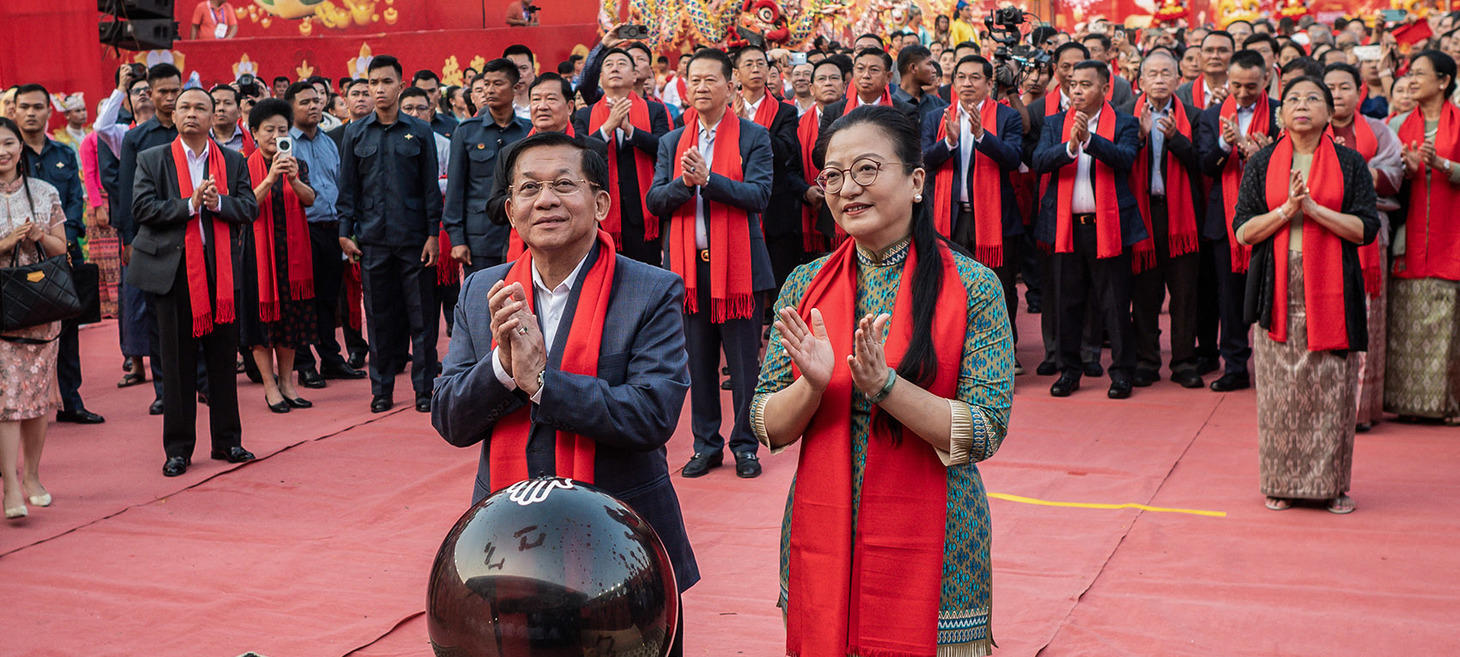
Myanmar Junta Pushes Spurious Claim Its Planned Vote Has Global Backing
Myanmar's junta leader, Min Aung Hlaing, claims that the international community supports the election he is organizing, despite only having visited Russia and China during his four years in power. He states he has explained election preparations to foreign leaders and diplomats. The junta's Foreign Minister, Than Swe, echoes this, asserting international support for a "Myanmar-owned and -led approach" and claiming that countries engaging with Myanmar are enthusiastic about the junta’s plans to hold a "free and fair election". However, major democratic countries have downgraded diplomatic ties and imposed sanctions since the 2021 coup, and have condemned the regime. The countries that support the junta’s poll plan include China, India, Russia, Thailand, Cambodia, Laos, and Vietnam, as well as Belarus. The junta has also highlighted its intention to invite international observers to monitor the poll. The junta’s election is widely dismissed as illegitimate by Western countries and opposition forces in Myanmar. The formerly ruling National League for Democracy and other major pro-democracy parties chose not to register for the election.
Conflict
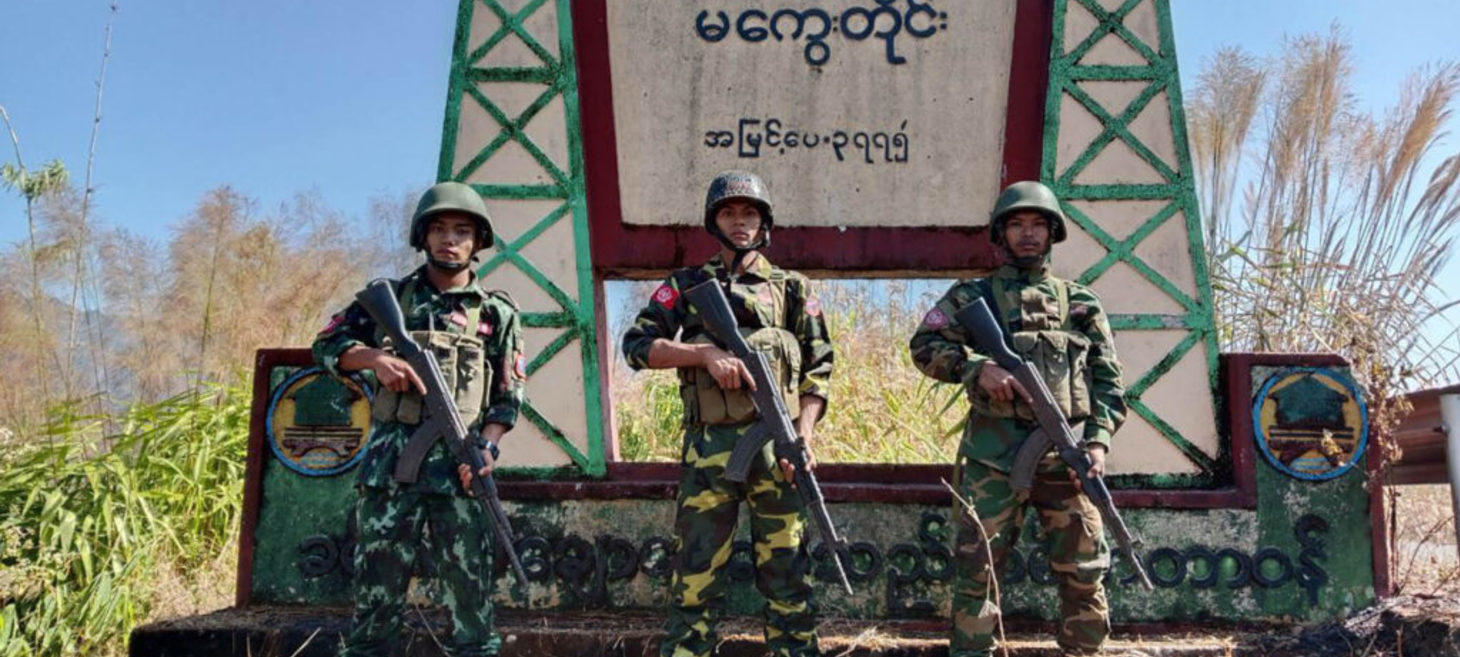
Arakan Army Defeats Myanmar Junta Base in Magwe Region Rout
The Arakan Army (AA) has seized a junta defensive position in Ngape Township, Magwe Region, killing over 60 soldiers and capturing others. The AA’s offensive is part of its expansion beyond its home state of Rakhine. Junta reinforcements from the 99th Light Infantry Division (LID) had arrived at Gote-see-yoe village near the Rakhine-Magwe border, but were raided by AA troops who also seized weapons and ammunition. At least three local resistance groups are attacking junta reinforcements along the Ann-Padan road in Ngape Township and blocking fleeing regime forces. Magwe Region hosts over a dozen of the junta’s ordnance factories, including KaPaSa 14 in Ngape town, which produces missiles and electronic PCBs. The 99th LID was dispatched to Magwe starting December 6 to defend the Western Command, but over 600 of the 1300 soldiers dispatched have been killed, surrendered, or fled. The AA has seized 14 of 17 townships in Rakhine State and Paletwa township in Chin State, and has also made advances in Bago, Magwe, and Ayeyarwady regions.
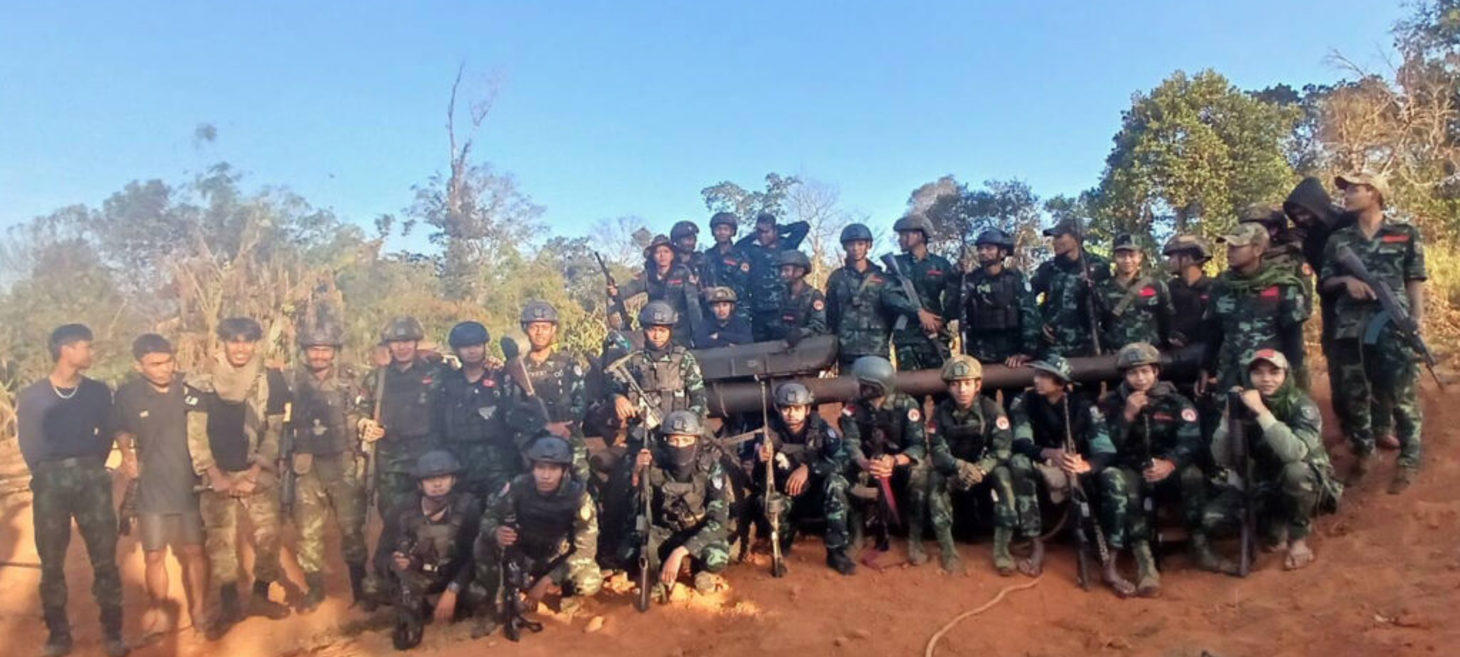
Karen-Led Rebels Seize Myanmar Junta Base in Mon State
A joint resistance force led by the Karen National Liberation Army (KNLA) seized the Myanmar junta's Mae Pale base in Mon State's Belin Township after a month of fighting. The fighters, which included members of the People's Defense Force (PDF), Bamar People's Liberation Army (BPLA), and Force for Federal Democracy (FFD), arrested 29 regime troops, including a battalion commander. The rebels overcame junta airstrikes and the base's advantageous location to seize the base. The rebels suffered casualties, including one FFD troop and one KNLA fighter, but captured weapons including three howitzers. The KNLA had previously recaptured the Manerplaw area of Karen State. The Irrawaddy is an independent news media group founded in 1993 that provides news and analysis on Myanmar and Southeast Asia.
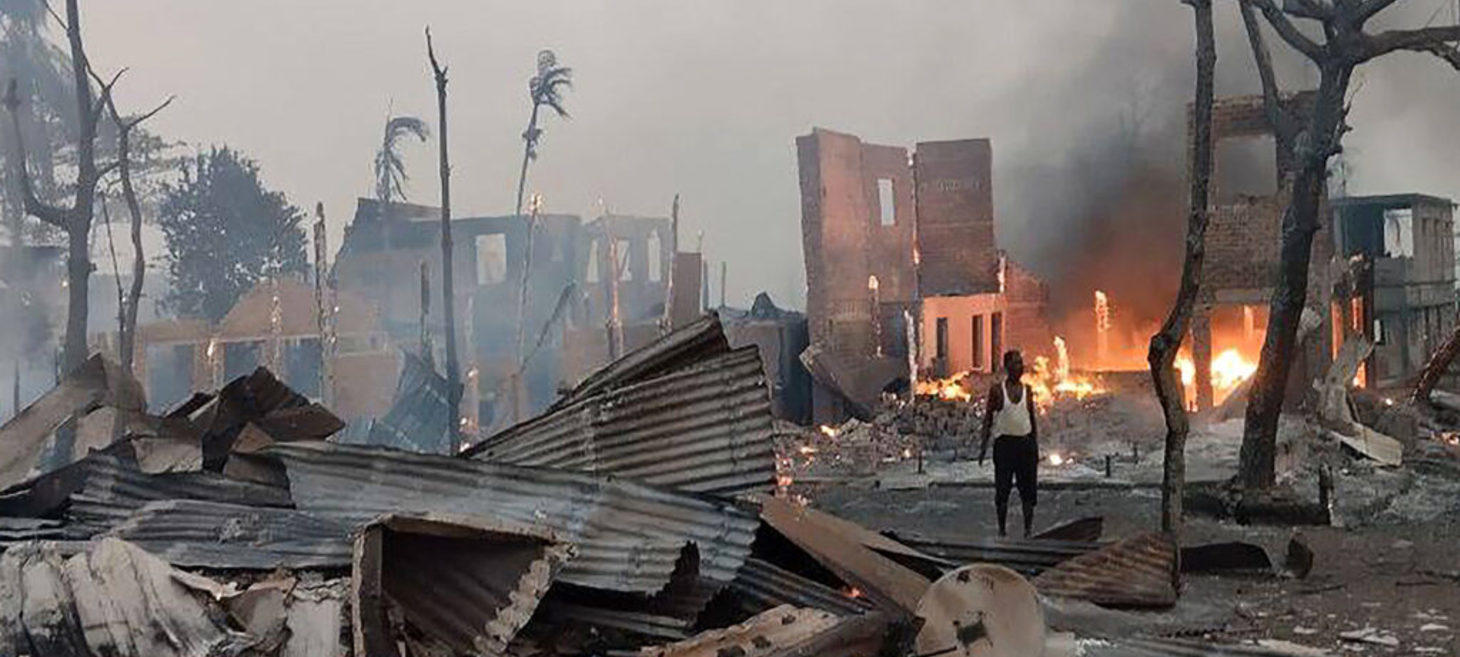
UN Probe Warns Myanmar Violence May Worsen, Four Years Since Coup
UN investigators have reported that serious international crimes have been committed in Myanmar since the military coup of February 1, 2021. The violence has involved the military and various ethnic rebel groups and has resulted in the displacement of over 3.5 million people. The military has used lethal violence to suppress protests, imprisoning and torturing perceived opponents. There have been increasing reports of indiscriminate air strikes, artillery and drone attacks that have killed civilians and destroyed hospitals, schools and places of worship. Although most of the evidence collected concerns crimes committed by the military, investigators are also probing reports of atrocities committed by other armed groups, including rape, killings, and torture. The UN Human Rights Council established the Independent Investigative Mechanism for Myanmar (IIMM) to collect evidence of the most serious international crimes and prepare files for criminal prosecution. The International Criminal Court’s prosecutor has requested an arrest warrant for junta chief Min Aung Hlaing for alleged crimes against the Rohingya minority in 2016 and 2017. The UN estimates that 19.9 million people in Myanmar will need humanitarian aid in 2025.
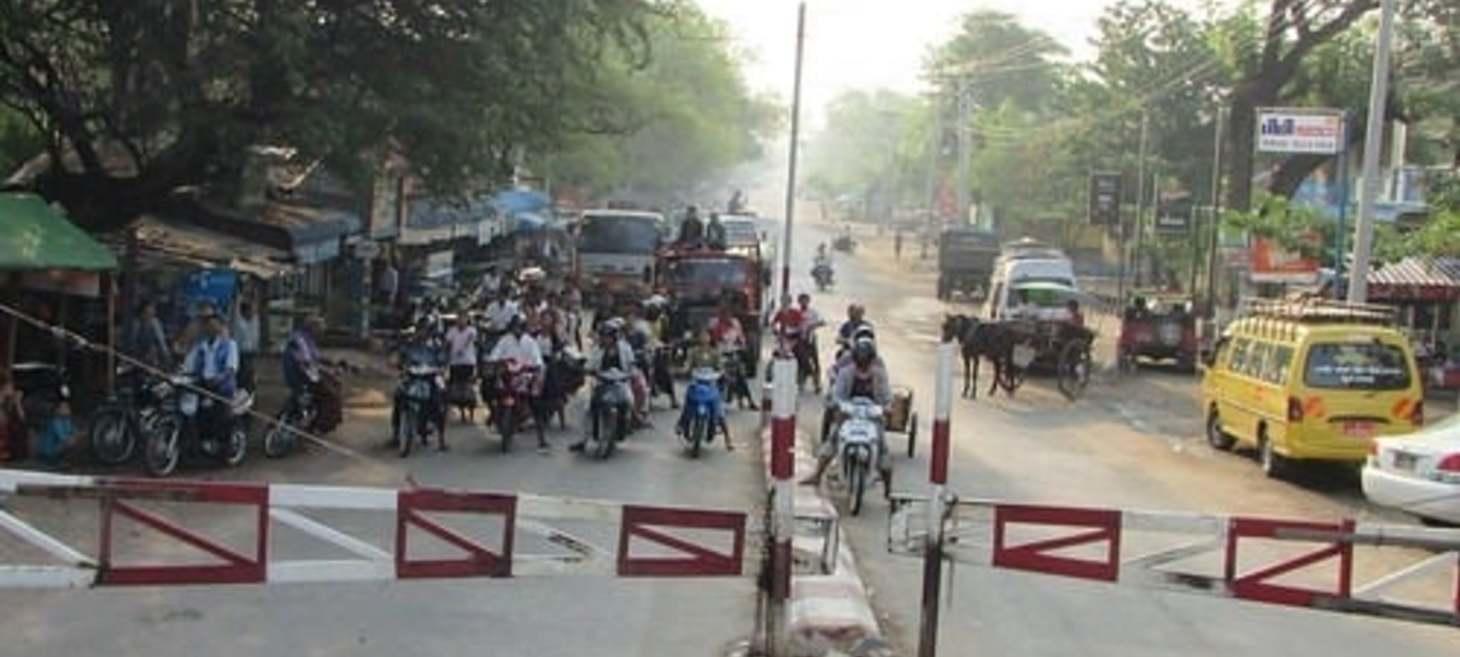
Long Delays at Junta Checkpoint on Thazi to Kalaw Road
The Kywetatson checkpoint on the road between Kalaw Town in Shan State and Thazi Town in Mandalay Region has caused significant delays due to more stringent checks by junta soldiers. Security measures include X-ray scanning of vehicles and individual checks of all travelers, which has resulted in long queues. Family cars can be stuck for up to three hours, and cargo trucks can be delayed for two to three days. These thorough checks are reportedly to prevent weapons smuggling. Additionally, travelers must present their national identification cards, junta-issued smart cards, and travel authorization papers. It is advised that travelers avoid carrying perishable goods and clear their phones of any political content. Junta checkpoints are often more stringent in areas where there is fighting.
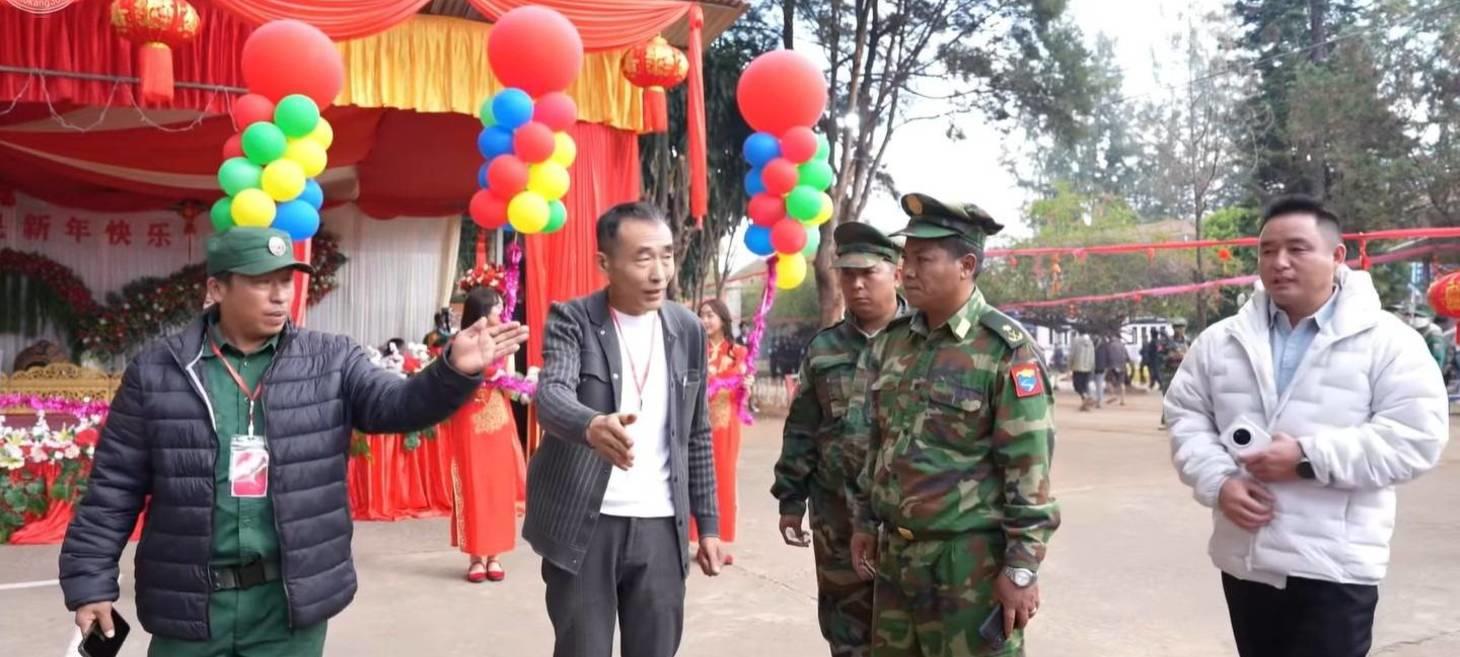
CHINA’S ENFORCER AND REFEREE ROLE: Kokang withdrawal from Lashio confirmed
A ceasefire agreement was reached between the Myanmar National Democratic Alliance Army (MNDAA) and the State Administration Council (SAC) in mid-January 2025, brokered by China, which included the MNDAA's withdrawal from Lashio. This withdrawal is to be completed in phases before the end of June 2025. China's role as mediator-enforcer has been critical in this agreement, due to their desire for stability along their border with Myanmar to protect investments and the Belt and Road Initiative. The agreement also stipulates that the MNDAA can keep other territories captured during Operation 1027 except Lashio, although this is not yet confirmed by the SAC. MNDAA leader Peng Deren has emphasized a commitment to peace and economic development. The ceasefire may bring stability to northern Shan State, influencing other armed groups and future negotiations. However, it is unclear whether the Kokang will actually implement the agreements, and if the ceasefire will lead to a long-term resolution of the civil war.
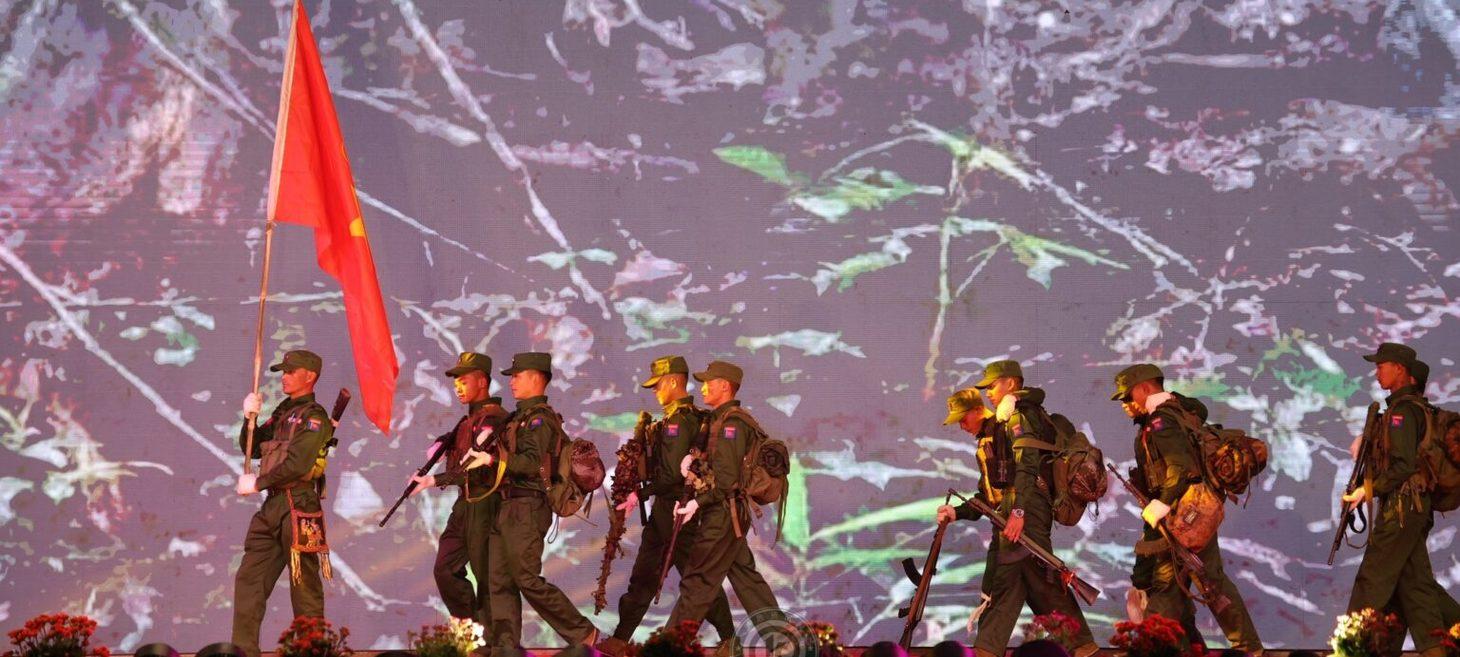
Kokang army to withdraw from Lashio in phases
The Myanmar National Democratic Alliance Army (MNDAA), also known as the Kokang army, will complete a phased withdrawal from Lashio, the largest city in northern Shan State, by June of this year. The withdrawal is part of a ceasefire agreement mediated by Chinese authorities, which also includes the suspension of hostilities and the reopening of border crossings. The MNDAA had captured and occupied the city in August of last year, marking a major escalation in the conflict between anti-junta forces and the Myanmar military regime. The agreement also includes the military’s cessation of airstrikes in areas controlled by the MNDAA.
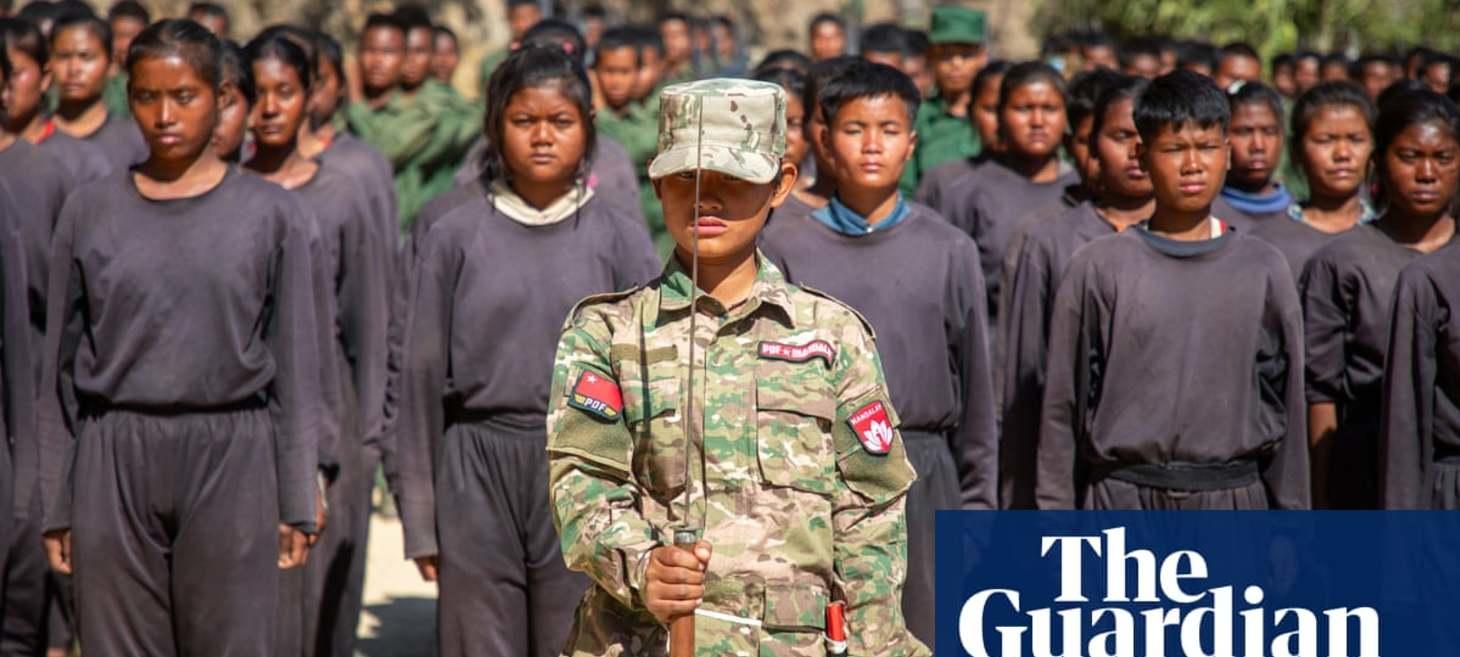
Myanmar civil war: a quick guide to the conflict
Since the military coup in 2021, Myanmar has been in a state of chaos as various groups fight against the military junta. The military, which had ruled from 1962 to 2011, seized power after a period of liberalization and democratic transition. The coup sparked mass protests and led to the formation of people's defense forces and alliances with ethnic armed groups. The military has suffered significant territorial losses, controlling only an estimated 21% of the country. While the US and EU have imposed sanctions, China's influence has grown, particularly regarding border stability and its own economic interests. The conflict has also severely impacted the Rohingya, who are caught between the military and the Arakan Army in Rakhine state. Aung San Suu Kyi, a prominent political figure who was detained after the coup, remains popular domestically, despite her international reputation suffering due to her silence on the Rohingya crisis. The country, formerly known as Burma, was renamed Myanmar by the military junta in 1989.
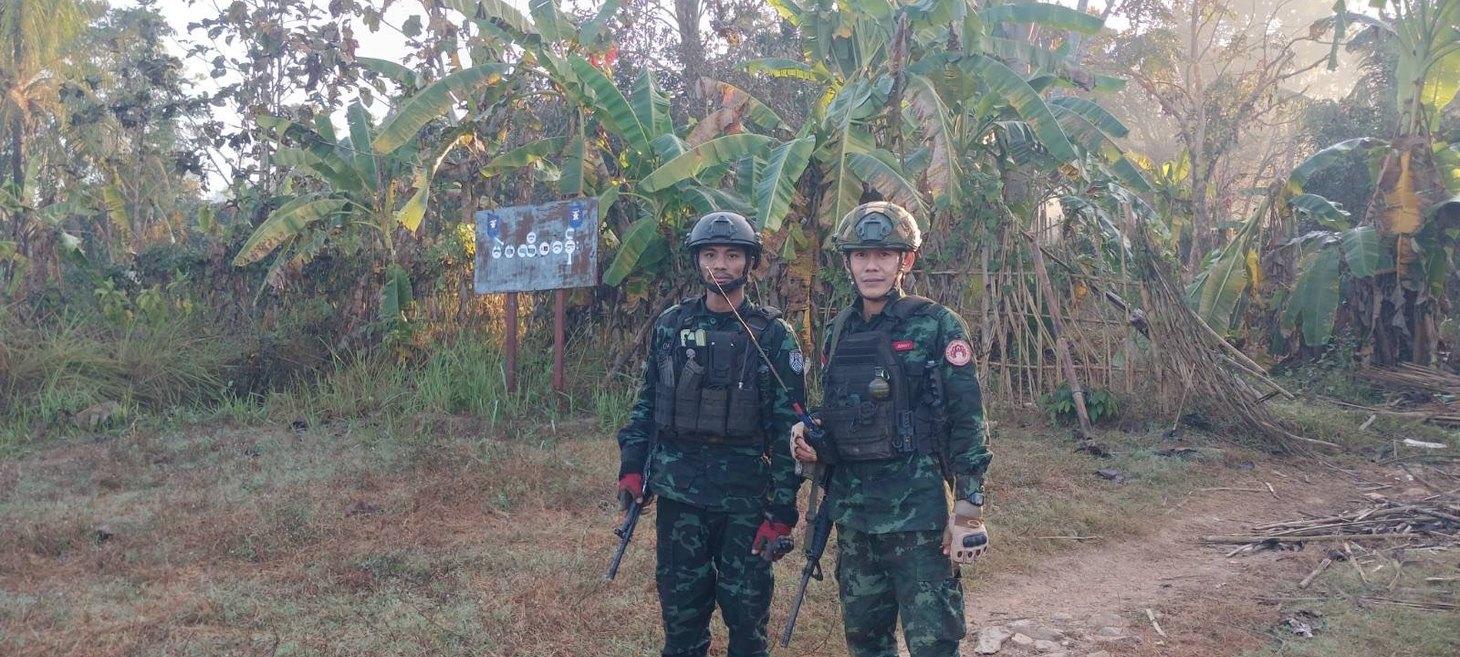
Karen fighters, allies advance into Mon State
The Karen National Liberation Army (KNLA) and its allies, including the Force for Federal Democracy (FFD) and the Bamar People’s Liberation Army, captured the junta's Me Pa Li tactical hill base in Mon State. This action is part of a larger strategy to isolate remaining junta garrisons in Hpapun Township by cutting off their supply lines. The KNLA-led offensive involved Brigade 5, with support from Brigade 1, and began after nearly a month of planning. The anti-junta forces took control of the base after a three-hour assault, capturing 29 junta soldiers and seizing a variety of weapons. The battle resulted in casualties for the anti-junta forces, including one KNLA soldier and an FFD deputy commander. The capture of the Me Pa Li base is significant because it positions the KNLA and allies to control the road between Bilin and Hpapun, further reinforcing their blockade around junta-controlled areas.
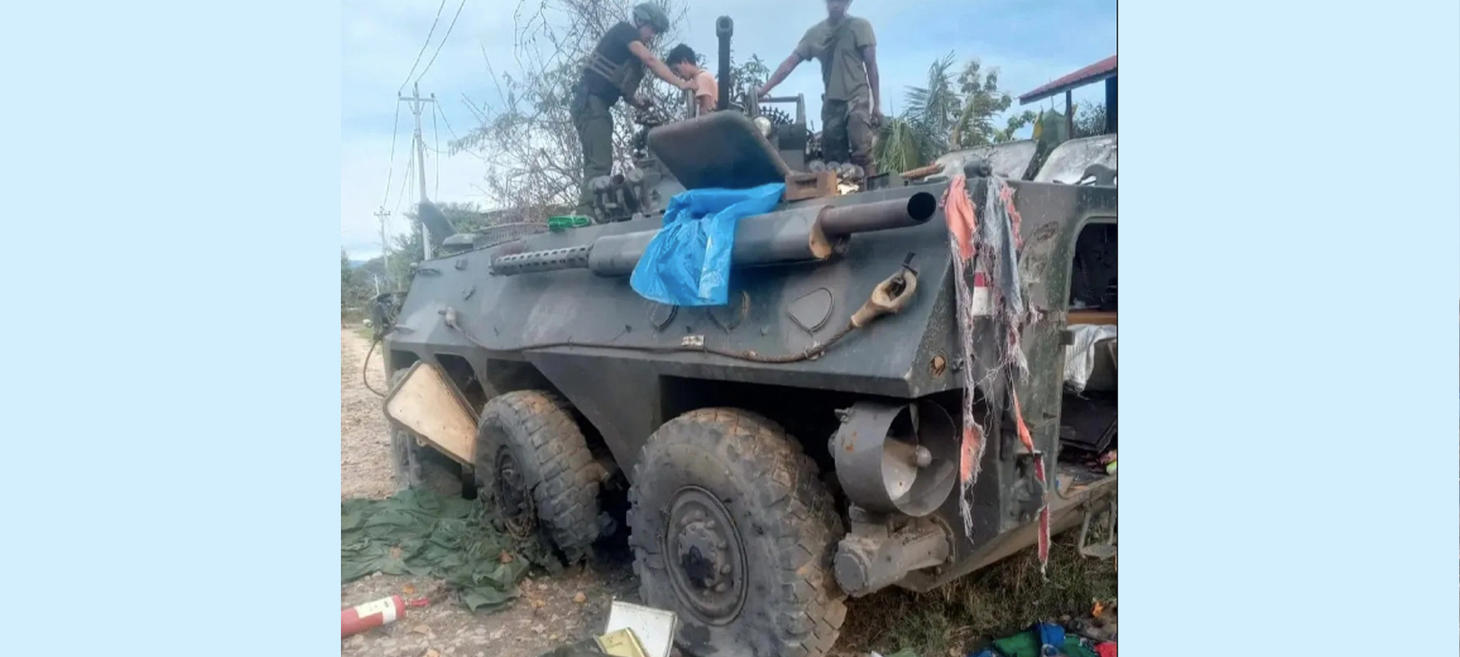
Myanmar Junta Headquarters Falls in Key Kachin Town
The Kachin Independence Army (KIA) has captured the headquarters of Artillery Battalion 366 in Bhamo, a key town in Kachin State. This is considered a significant victory, as it was one of the strongest junta positions in the area. The KIA and its allies also seized Bhamo’s airport and Armored Battalion 7006 in late January. The fighting continues at the 21 Military Operations Command (MOC) headquarters. A former captain, Zin Yaw, stated that the capture of the 366 Battalion makes the 21 MOC easier to capture, and that once the 21 MOC falls, the remaining bases, which are mostly smaller combat-support units, will quickly fall. Bhamo is strategically important, second only to the capital Myitkyina in Kachin State and is close to the KIA’s Laiza headquarters. The town is now encircled, forcing the regime to resupply its troops by air. The KIA and its allies began attacking Bhamo and neighboring Mansi on December 4, with Mansi falling after a month of fighting. The Irrawaddy is a news source founded by Myanmar journalists in exile that provides news and analysis on Burma/Myanmar.
Conscription
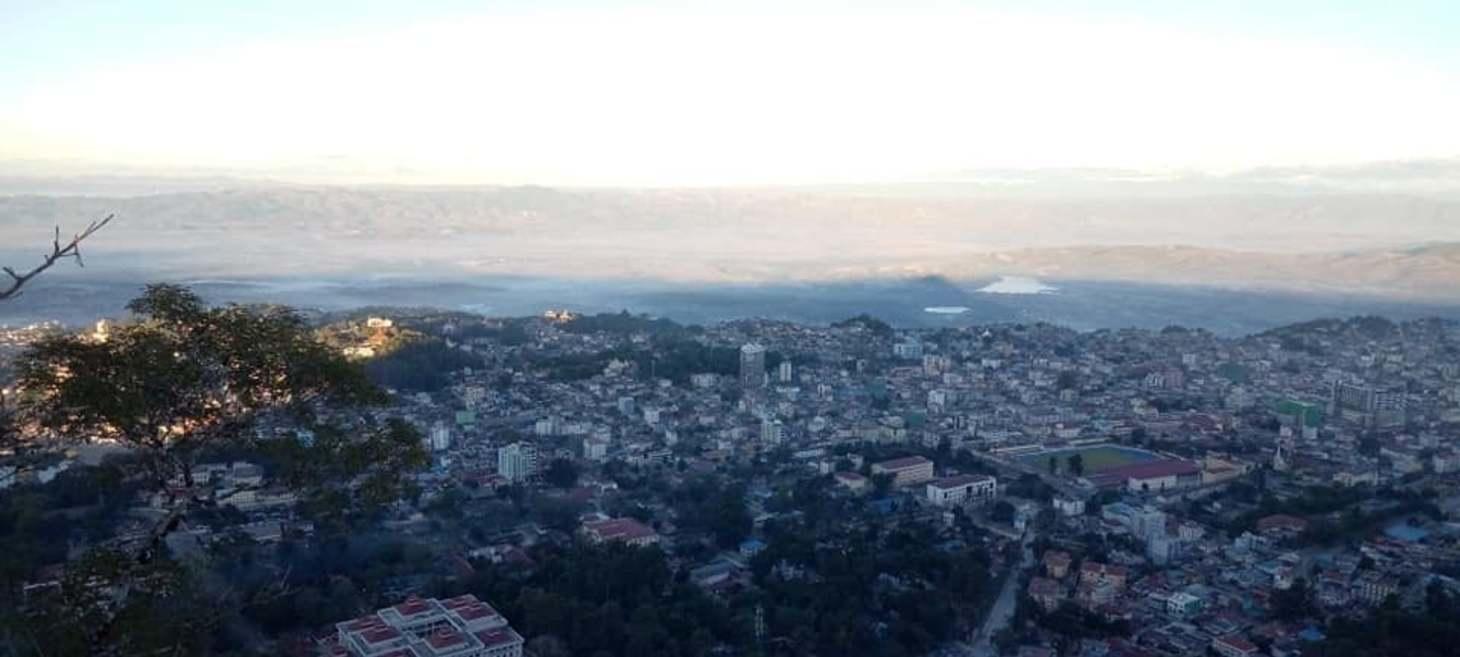
Women Registered for Conscription in Taunggyi
In January 2025, the junta in Taunggyi City, southern Shan State, began registering women for conscription for the first time. While the conscription law mandates the conscription of both men and women, only men had been conscripted in the first nine rounds since the law's activation in February 2024. A register of potential female conscripts aged 18 to 35 from Hparmun Village in Taunggyi Township has surfaced, causing concern among those named and their parents. Parents are worried about their daughters being drafted, especially given reports of conscripted men dying on the front lines. A young woman expressed feeling depressed and worried about spending up to five years in the military, hindering her studies. Additionally, there are concerns that the junta will increasingly target women for conscription due to a decreasing pool of young men. Young people in Taunggyi are also at risk of abduction by junta soldiers in civilian clothes. For example, a 27-year-old man was arrested by plainclothes soldiers and his parents had to pay for his release. These events, along with the conscription of women, have prompted parents to advise their children to be vigilant, avoid going out alone at night, and avoid traveling far alone.
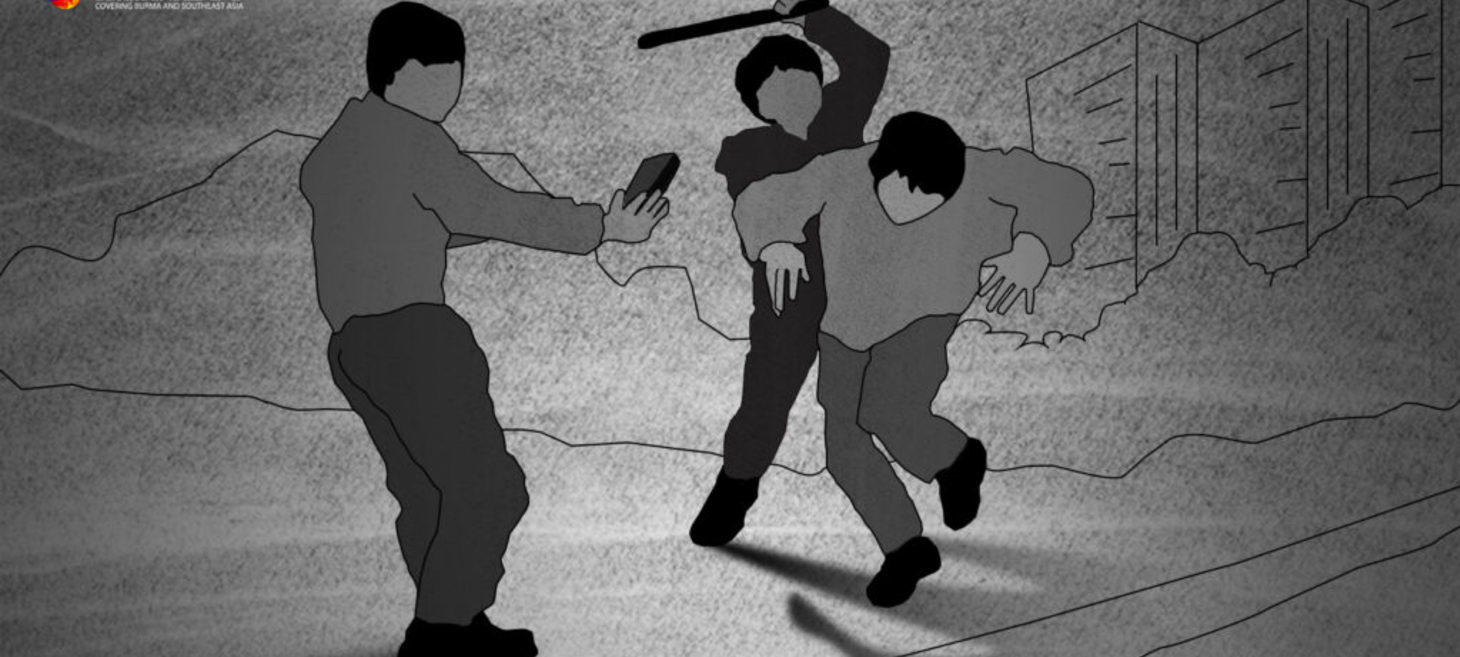
Kidnapped: How a Young Man Escaped Forcible Conscription in Myanmar
In early January 2025, a young man in Yangon was abducted by a group of thugs who were not military or police. The man was beaten, forced into a car with two other young men, and driven overnight to Magwe. At highway checkpoints, the abductors claimed to be "recruiting" and were allowed to pass without scrutiny. Upon arrival in Magwe, the abductees were transferred to brokers, who took them to Minbu, where they were given medical check-ups and then brought to tea shops to be sold to village administrators. One administrator eventually bought the young man for 5 million kyats, and he was taken to the township administration office to fill out forms. He escaped from the office by sneaking out the back and hitching a ride. The man advises young people to avoid going out alone at night, and to look for opportunities to escape if they are abducted. This incident occurred in the context of Myanmar's Conscription Law, which has led to mass exodus, and the military regime has trained nine batches of male conscripts since the law's enactment.
Crime & Narcotics
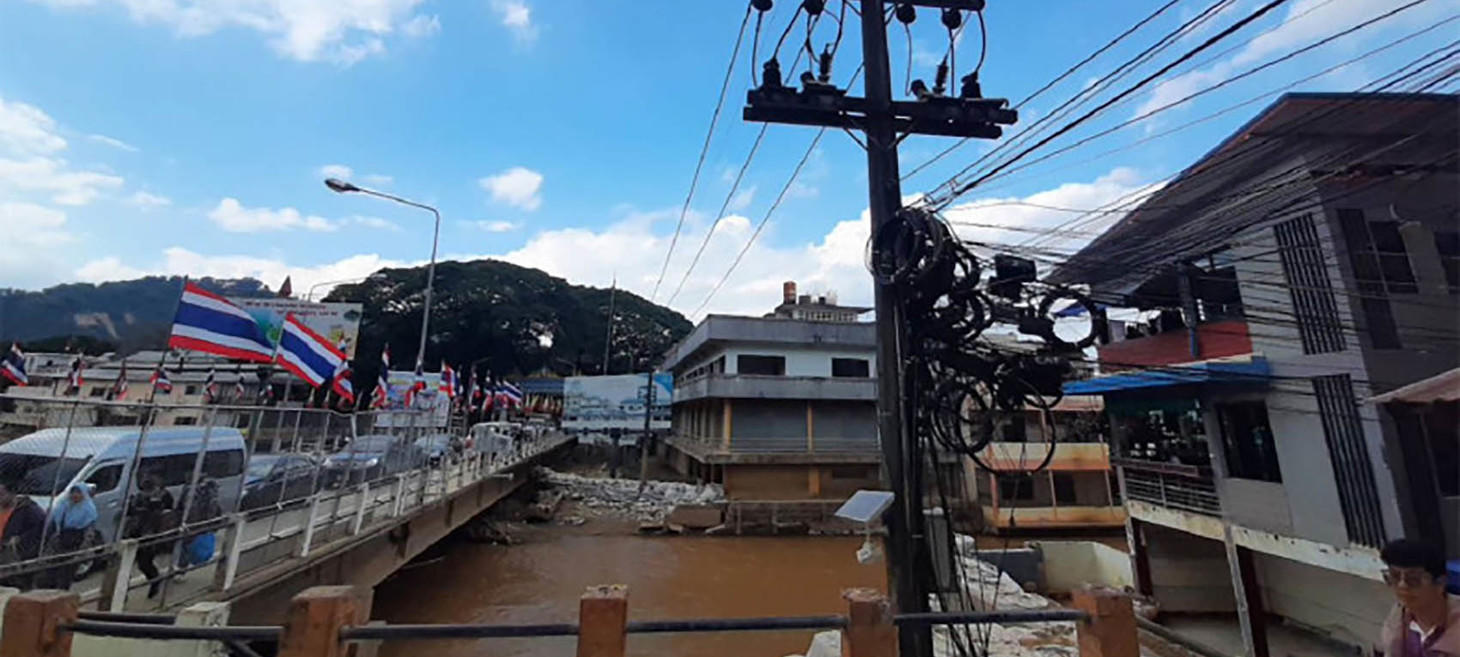
Thai Ministry ‘Needs More Info’ to Cut Power to Myanmar Scam Towns
Thailand's Ministry of Interior is seeking more information regarding the provision of electricity to areas in Myanmar suspected of hosting illegal activities. The ministry, specifically the Provincial Electricity Authority (PEA), supplies power to Myanmar in five areas and is exploring the possibility of cutting off power to specific areas involved in illegal activities without disrupting service to ordinary households and businesses. This action follows a cabinet resolution from May 14 of the previous year that instructed the ministry to coordinate with other agencies to suspend public utility services that are being used illegally for activities such as drug networks, money laundering, call-center scams, and human trafficking. The ministry has requested information from Thai security authorities and has invited representatives from 25 agencies to meet and provide information. The National Security Council (NSC) stated that it does not have the authority to designate areas in Myanmar as dangerous to Thailand. Supplying power to neighboring countries is a government policy that has security and humanitarian aspects.
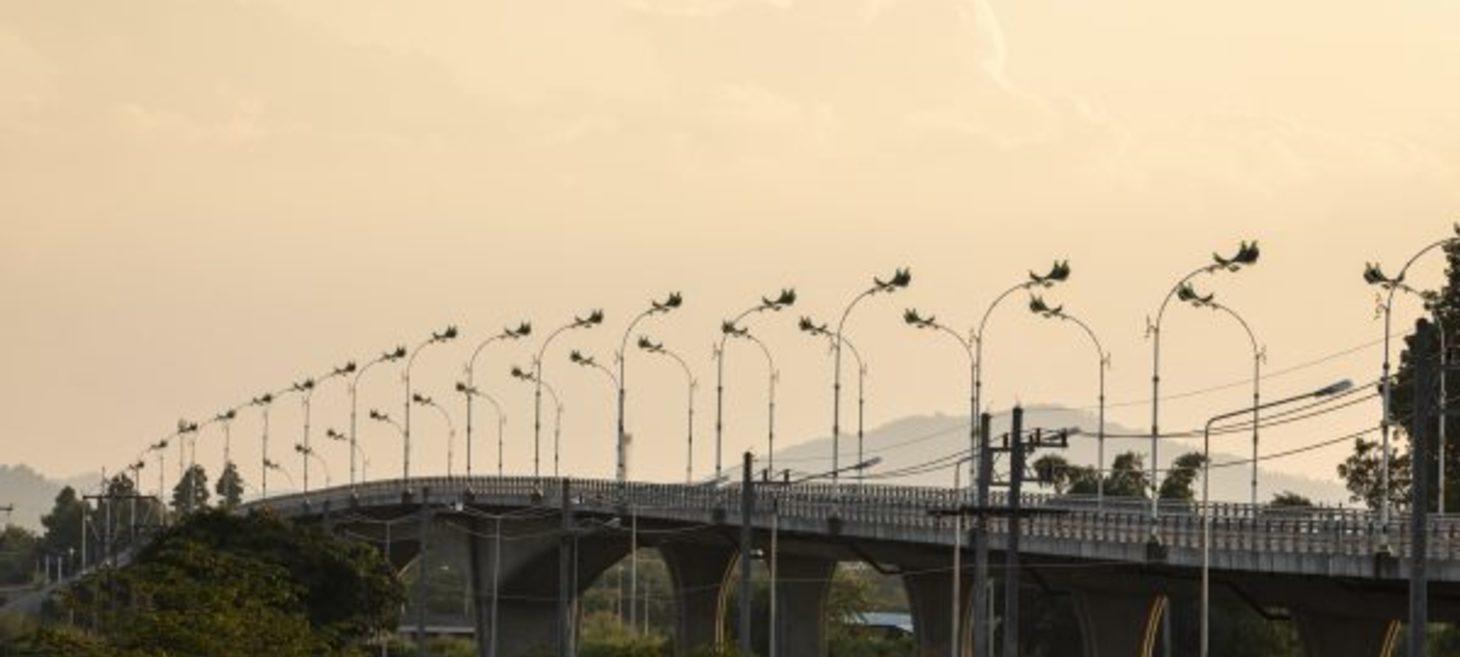
Thailand Versus the Scam Boom: A Look Into the Fight
Thailand is facing increasing scrutiny as a gateway for transnational scam operations, particularly those led by Chinese entities in neighboring Myanmar and Cambodia. These scams are a major concern for the Thai government, with 58.2% of Thais considering it the top issue, even surpassing the Myanmar crisis in importance. The situation is further complicated by internationally publicized kidnappings of Chinese nationals near the Thai-Myanmar border, which has led to decreased Chinese tourism and involvement of Chinese officials. Thailand's role in the scam epidemic is under question, with accusations of facilitating these operations through corrupt officials and controversial electricity sales to Myanmar, which may support criminal enterprises. Despite these accusations and the expectation that Thailand has leverage over these illicit networks, the reality is that local actors like Colonel Saw Chit Thu, a powerful figure in the Myanmar border area, are deeply entrenched and unlikely to give up their business empires. This makes it difficult for Thailand to act decisively, as firm pressure could lead to defiance or retaliation, and the lack of clarity within the Thai government, along with the blame game between responsible agencies, only reinforces doubts about the state of governance.
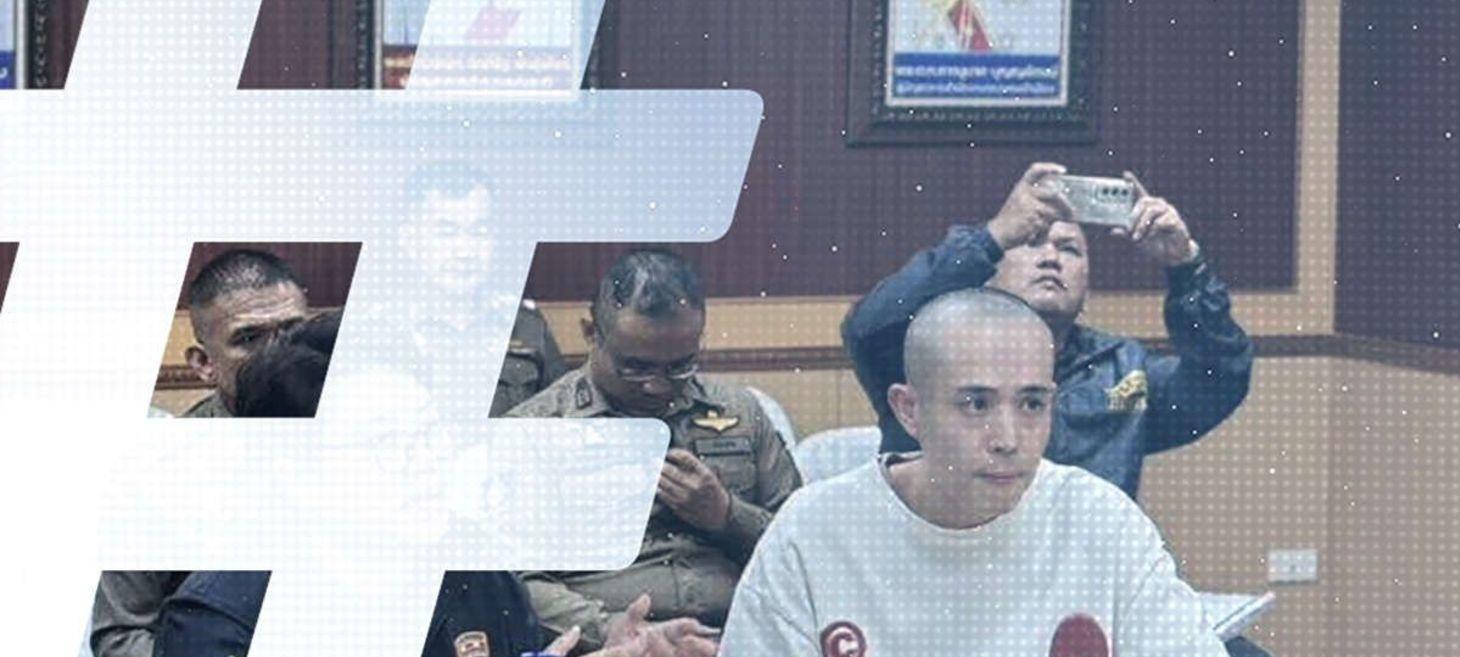
Uncovering the Scam Industry - China Media Project
The outlet Positive Connections published an in-depth investigation by journalist Wu Qin into the cyber scam industry along the Myanmar-Thailand border. The investigation, which involved months of on-the-ground reporting in Mae Sot, Thailand, revealed a complex infrastructure of criminal operations that relies on a network of Chinese, Thai, and Myanmar actors. According to Wu's reporting, Chinese criminal groups operate scam compounds in the Myawaddy region of Myanmar, where individuals are often trafficked and forced to engage in online fraud. The investigation also highlights how the local population in the region focuses on how Chinese gangs operate the scams, while Chinese public discourse tends to blame Southeast Asian countries for the scams. The area has become a "lawless zone" where governance is difficult, and the river that divides the two countries facilitates smuggling and illegal crossings. The movement of people across the border is enabled by Thai Chinese with connections to authorities, and Myanmar Chinese who secure land for the compounds. Victims are often "deceptively recruited" from China, sometimes through agents, and are held in the compounds until they or their families pay a "compensation" fee.
Foreign Affairs

Singapore Firm Feeds Floods of Oil to Myanmar Junta
Since the 2021 coup, a Singapore-listed company, Interra Resources Ltd, through its Myanmar subsidiary, has supplied over 2.3 million barrels of oil to the Myanmar junta-controlled Myanma Oil and Gas Enterprise (MOGE), which has been a critical resource for the junta, enabling it to produce fuel for its military. Interra owns 60 percent of Goldpetrol Joint Operating Company Inc., which extracts oil from Myanmar’s onshore fields, while the other 40 percent is owned by a subsidiary of Chinese state-owned arms conglomerate NORINCO. Goldpetrol has supplied MOGE with over 2.3 million barrels of crude oil between January 2021 and the end of 2023, generating over $55 million in revenue. MOGE, which is the regime’s largest source of foreign revenue, has been sanctioned by the EU and U.S. for funding the junta’s military campaign, which has included airstrikes, artillery shelling, and other attacks that have killed thousands of civilians. Despite calls for coordinated international sanctions against MOGE, MPE, and military-linked financial institutions, Interra claims it had to fulfill its “contractual obligations” to continue supplying oil to MOGE.
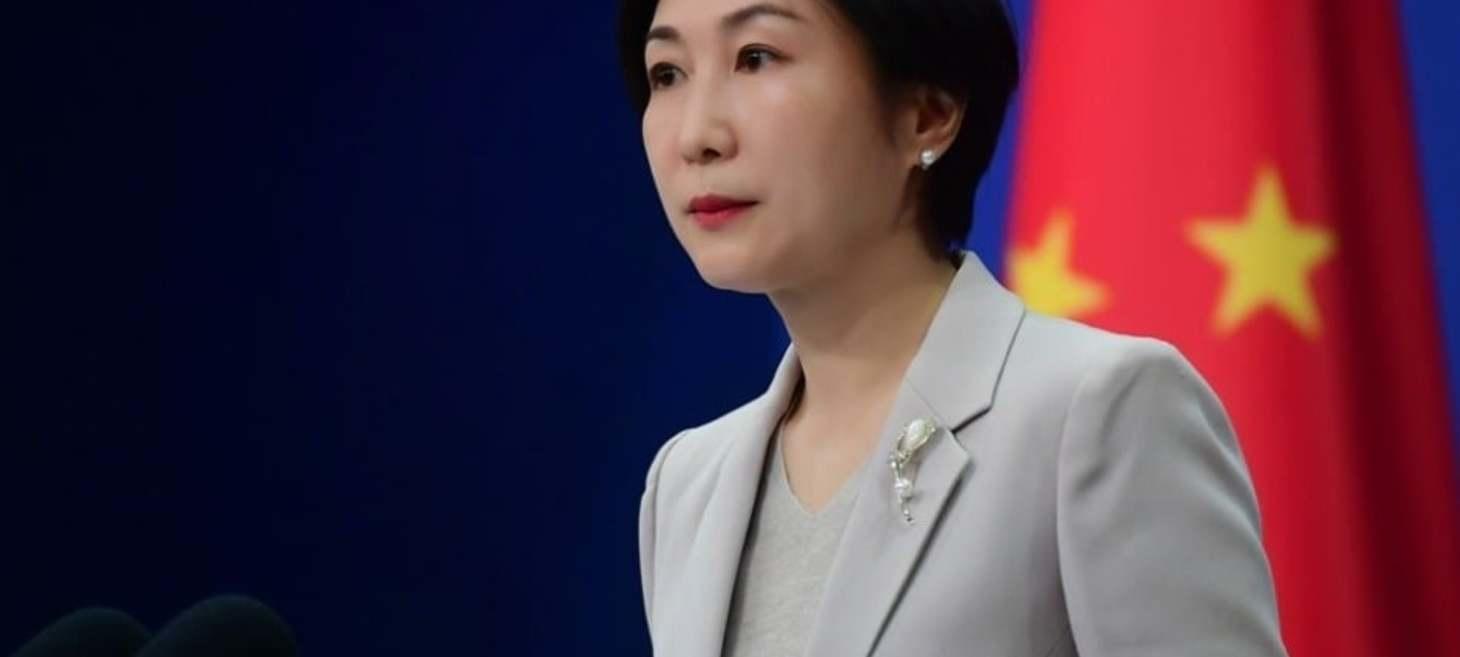
CHINA’S HEAVY-HANDEDNESS: Imposition of China’s will against the Myanmar people’s aspirations
TChina is attempting to mediate the conflict in Myanmar, with the goal of solidifying the military junta's power and maintaining stability in the region. China's actions are not always in line with the aspirations of the Myanmar people, who are largely against the junta. China facilitated a ceasefire between the Myanmar military and the Myanmar National Democratic Alliance Army (MNDAA). However, many groups within Myanmar, including various Ethnic Armed Organizations (EAOs), People's Defense Forces (PDFs), and the National Unity Government (NUG) are actively fighting against the junta and seeking to establish a federal democratic union. These groups are forming alliances and increasing cooperation, while the junta struggles to maintain control and faces a lack of public support. There are also a number of EAOs who are hedging their position by engaging with both the military and resistance groups.
Governance & Rule of Law
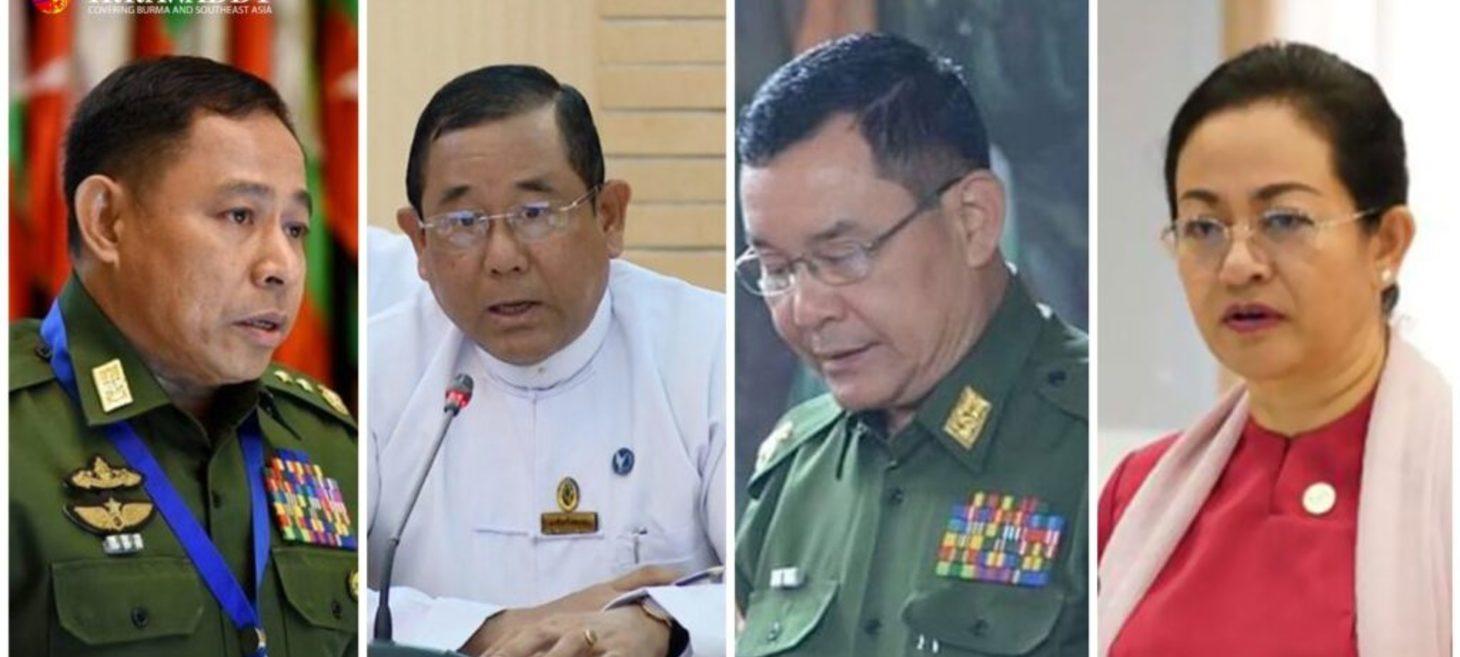
3 Ministers Purged in Myanmar Junta’s Latest Reshuffle
On the fourth anniversary of the coup, Myanmar's military regime reshuffled key government positions, purging three ministers, including Home Affairs Minister Lieutenant General Yar Pyae, who was moved to Border Affairs Minister, and Border Affairs Minister Lt-Gen Tun Tun Naung, who switched to Home Affairs. Deputy military intelligence chief Major General Toe Yi was also replaced and demoted to the anti-graft commission. Additionally, Hotels and Tourism Minister Thet Thet Khine, Labor Minister Myint Naung, and Sports and Youth Affairs Minister Min Thein Zan were "allowed to retire," which is a euphemism for fired. Thet Thet Khine, previously an NLD lawmaker, was replaced by Kyaw Soe Win, while Myint Naung was replaced by Chit Swe, and Min Thein Zan was replaced by Jeng Phang Naw Taung. The reshuffle also included Yangon Command chief Maj-Gen Zaw Hein being appointed quartermaster general and replaced by Coastal Region Command chief Maj-Gen Pyae Sone Linn.
Humanitarian
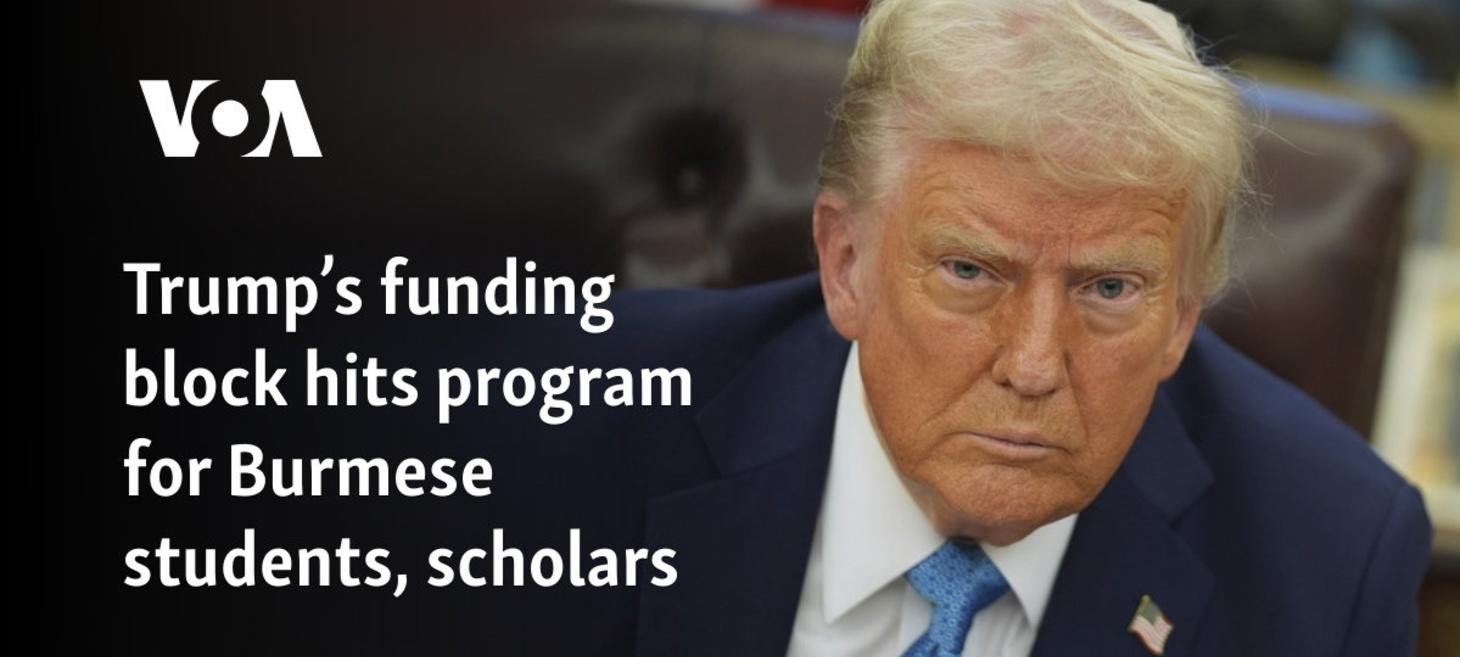
Trump’s funding block hits program for Burmese students, scholars - VOA Asia
President Trump's decision to block $45 million in funding for the Development and Inclusive Scholarship Program (DISP) has left over 400 Burmese students in a precarious situation, with many facing the abrupt cancellation of their scholarships. The program, which was originally called the Diversity and Inclusion Scholarship Program, was designed to support marginalized and underprivileged Burmese students in pursuing higher education at universities across Asia. The funding freeze has affected students at various academic levels, leaving them uncertain about whether to continue their studies, return home, or take other next steps. Many students who fled Myanmar due to the military coup, fighting, or forced conscription are now impacted. The program aimed to support 1,000 Burmese students over five years, with a second batch of students currently in the final stage of the screening process. The decision to block funding has raised concerns about its impact on Burmese individuals and on America's soft power, as well as the possibility that it could give China an advantage. While the State Department has issued a waiver for some humanitarian aid, it remains unclear whether the DISP will be reviewed or if existing scholarship recipients will be allowed to complete their studies. The program was designed to reflect Burma's ethnic and religious diversity, and many recipients belong to ethnic minority groups that have historically faced discrimination under the Burman-dominated, military-controlled education system.
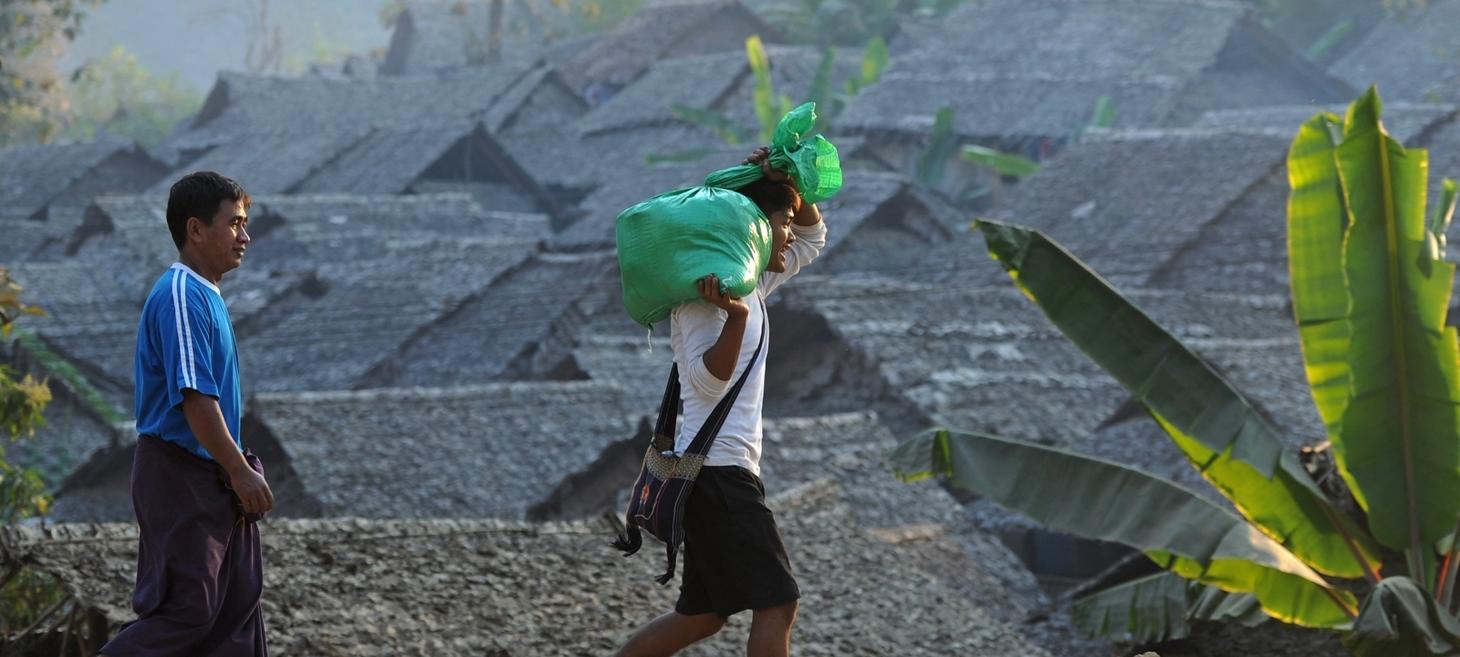
‘America first’ in action: Trump’s aid freeze erodes an already anemic response to Myanmar crisis
A recent executive order by U.S. President Donald Trump has frozen all international aid, causing chaos among humanitarian organizations and their beneficiaries in Myanmar and Thailand. The order, which came after a cable from U.S. Secretary of State Marco Rubio, halted work on all foreign assistance worldwide for 90 days pending review, except for military support for Israel and Egypt, and emergency food assistance. This action has forced NGOs to lay off staff, cancel services, and close facilities. Myanmar is one of the world's neediest countries, with 35 percent of its population requiring humanitarian aid. Even before the aid cutoff, Myanmar's needs were underfunded, with international donors meeting only 36 percent of the required $995 million for 2024. The U.S. was the largest single donor, providing 32 percent of the funding. A temporary waiver for life-saving humanitarian assistance was later issued, but aid organizations remained confused about whether their programs were exempt. Many organizations fear they will not survive the 90-day review period. The aid freeze has impacted medical care, education, and shelter for internally displaced people, and also documentation of human rights violations.
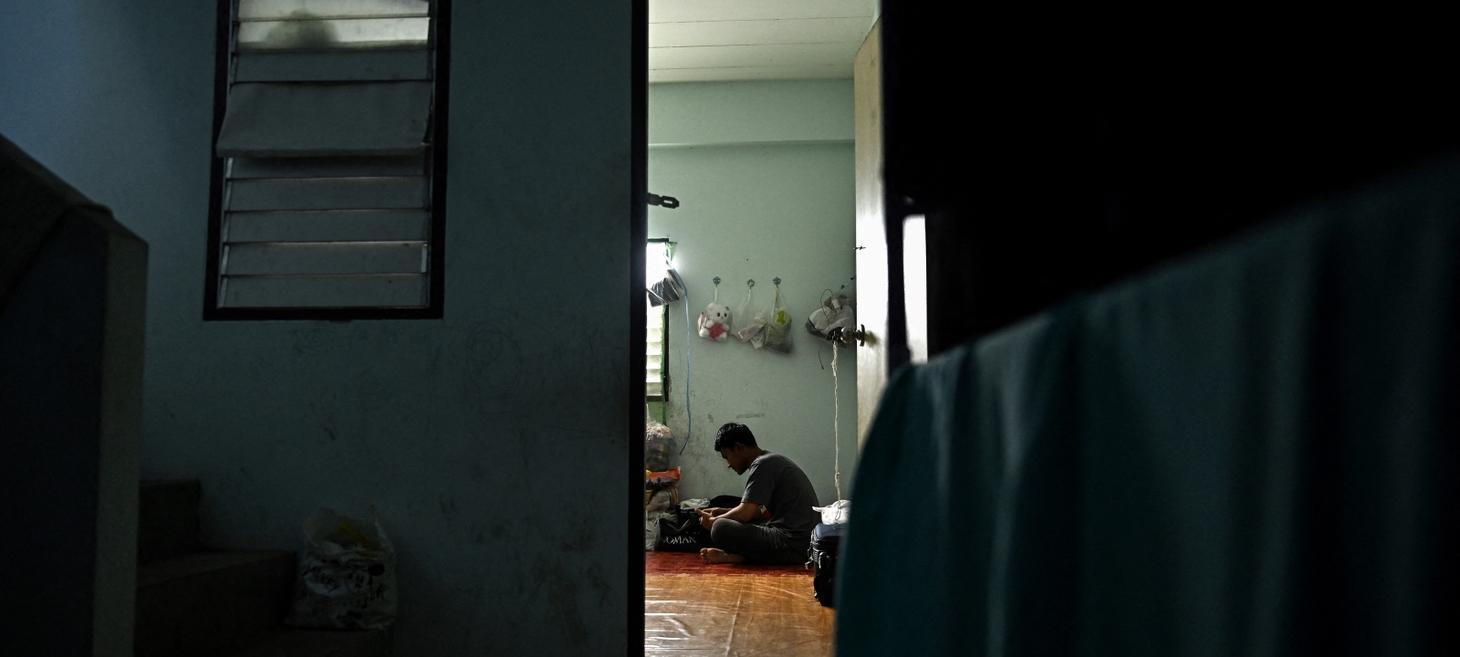
‘No happiness’: Misery for Myanmar exiles four years on from coup
Four years after the military coup in Myanmar, many young people have fled to Thailand, seeking refuge from the violent repression and civil war. These migrants, often lacking Thai language skills, are forced to take low-paying jobs in difficult conditions, such as in fish processing plants. They face constant fear of arrest and deportation, and many express a deep sense of loss and despair over their disrupted lives and lost opportunities. The coup has led to widespread displacement and economic hardship, with many families in Myanmar relying on remittances from relatives working in Thailand. The migrants report feeling "traumatized" by the coup and its aftermath, longing for the lives they once had before being separated from their families.
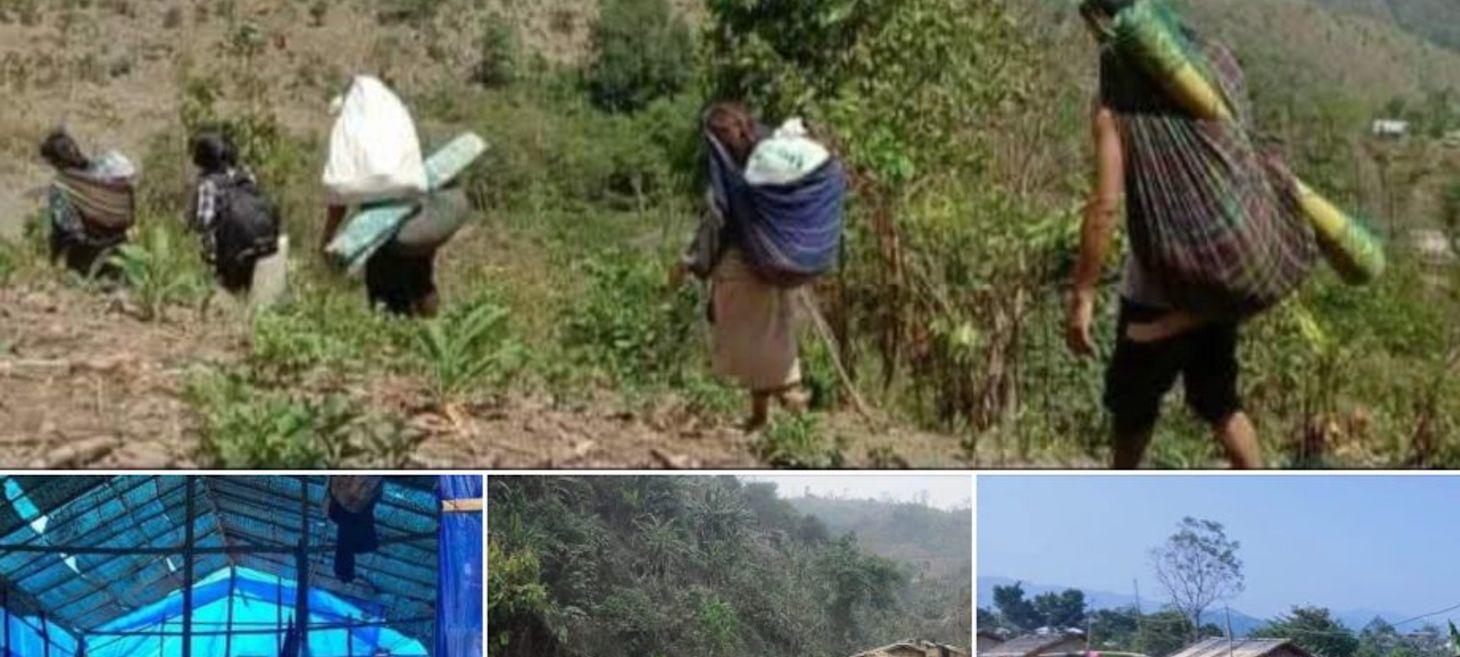
CHRO Urges Western Governments to Fill US Aid Vacuum
The Chin Human Rights Organization (CHRO) is urging Western governments to increase humanitarian aid to Myanmar in response to the suspension of US foreign aid. The CHRO states that the escalating military violence and displacement have created a critical situation in which delayed or inadequate aid could undermine efforts to establish peace and stability in liberated areas. The absence of international support puts essential services and governance structures at risk, as basic needs like food and medical supplies are running low and protection mechanisms are in jeopardy due to the junta’s attacks on civilian populations. The CHRO emphasizes the moral obligation of countries like the UK, EU, Canada, and Australia to act swiftly and prevent further suffering, empower local communities, and ensure accountability for the junta's crimes. The CHRO also calls for support for human rights documentation, which is vital for addressing impunity and holding perpetrators accountable.
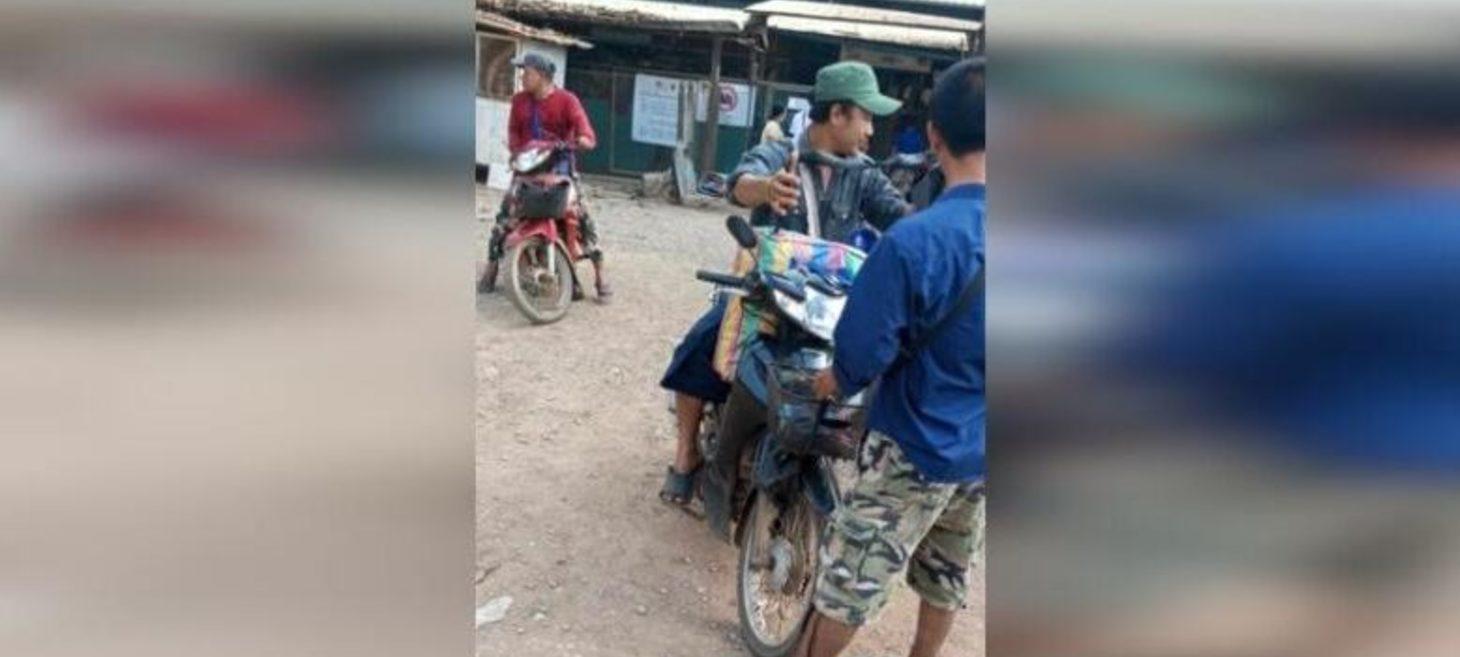
Trump Order Suspends Healthcare in Refugee Camps
Healthcare services in refugee camps along the Thailand-Myanmar border, which are run by the International Rescue Committee (IRC), were suspended on January 27, 2025, due to a funding pause ordered by the US President. The IRC, a main healthcare provider in the camps, receives about half of its funding from the US government. The 90-day pause in US government funding has forced the IRC to suspend all healthcare services, leading to hospitals discharging patients and halting outpatient services. This suspension affects refugee camps in Tak Province, including Nupo, Umpiem, and Mae La, and has also stopped ambulance services. The IRC also provides other services, such as waste collection, drinking water, and care for mothers and children, all of which have been suspended. The Karen Refugee Committee (KRC) is concerned about the hardships this will create in the camps. The healthcare workers are uncertain about the duration of the suspension and when they will receive their salaries.
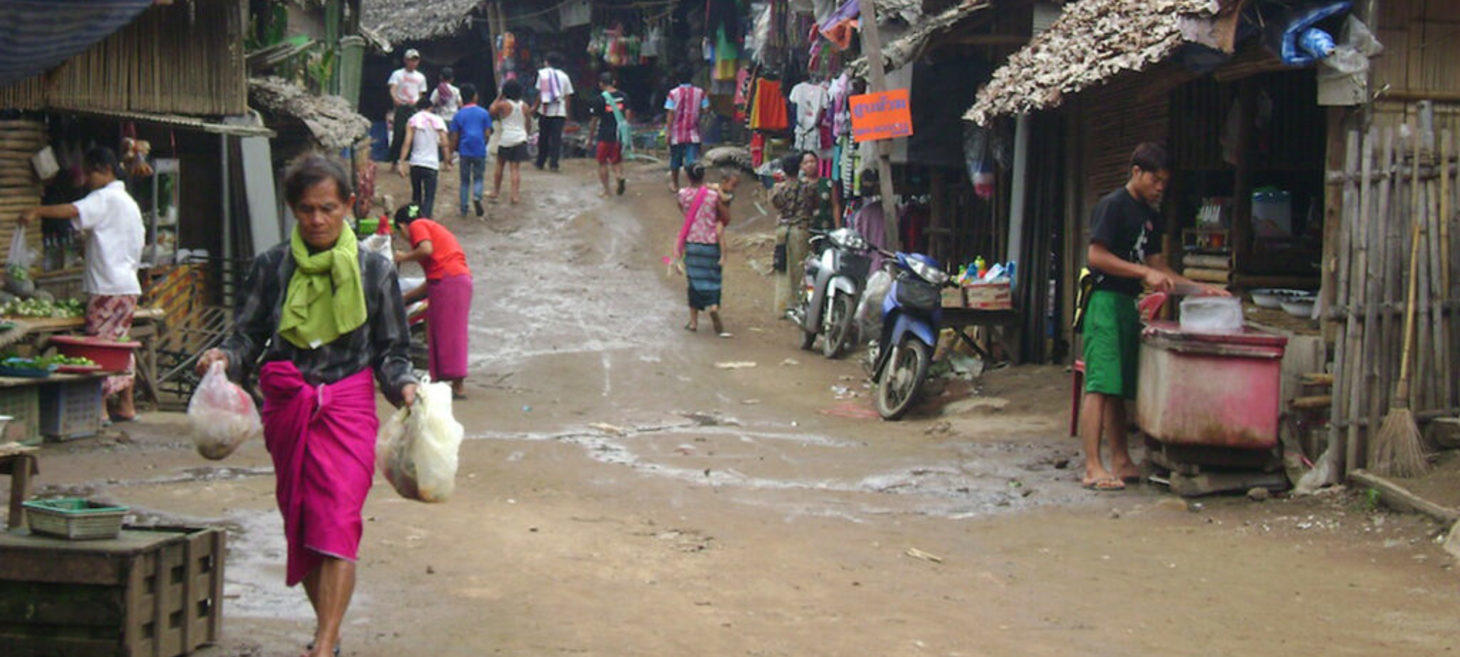
Refugee Patient Dies on Myanmar-Thai Border After Trump Blocks Aid
Following the Trump administration's suspension of foreign aid, seven clinics in refugee camps on the Thailand-Myanmar border closed, impacting over 80,000 refugees. A man died at the Umpiem Mai camp after being discharged from inpatient care due to the closures. The suspension of aid has left refugees without access to medical care and supplies, including those at Mae La, Umpiem Mai and Nu Po in Tak Province, Ban Don Yang in Kanchanaburi Province, Tham Hin in Ratchaburi Province, and two Karenni camps in Mae Hong Son Province. The Mae Tao Clinic, which does not solely depend on U.S. aid, continues to operate but may face challenges. The International Rescue Committee (IRC) primarily runs the nine border camps housing around 100,000 refugees. The Karen Refugee Committee (KRC), which helps run some of the camps, has been in talks with aid donors but there are no clear answers about how to help the critical patients. With no income and fear of detention, it is difficult for refugees to leave the camps to seek care.
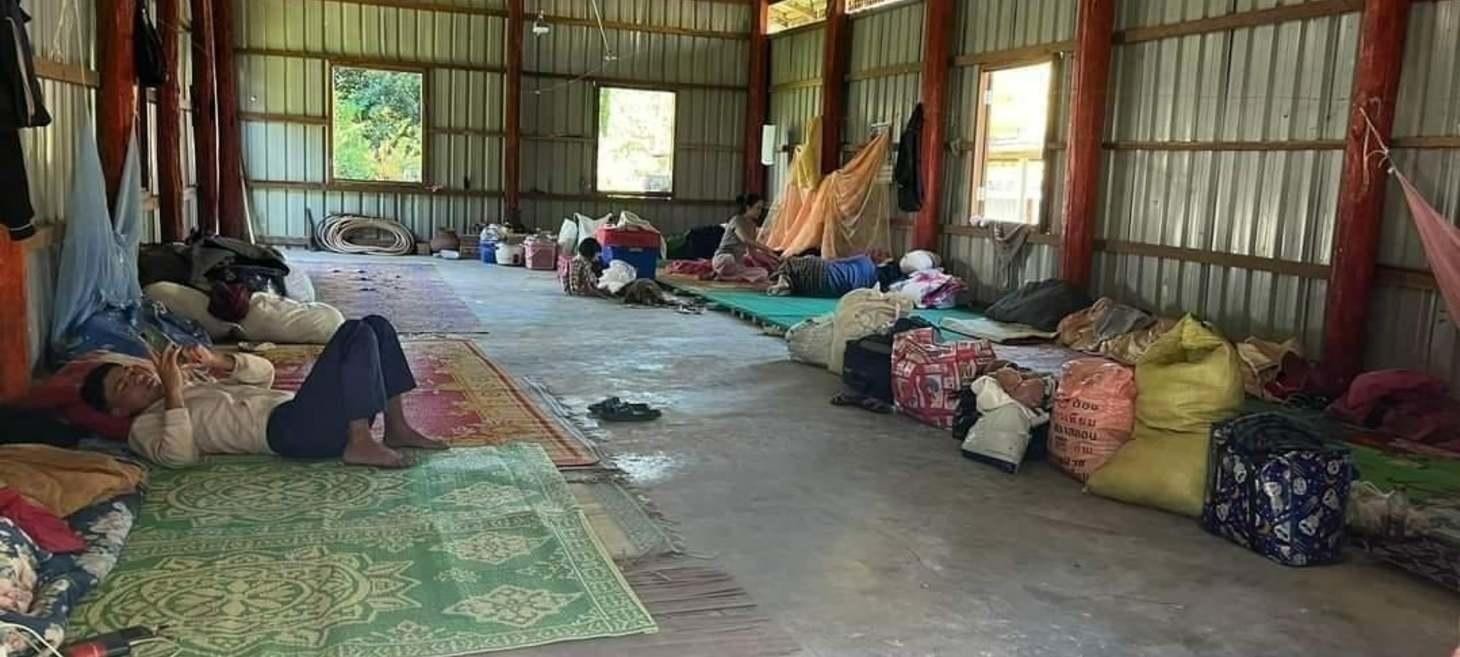
Karenni IDPs in Nyaung Shwe Township Fear Forced Relocation
Karenni internally displaced persons (IDPs) in Nyaung Shwe Township are increasingly worried about potential forced relocation by the end of March 2025, as the township’s General Administration Department has informally advised them to prepare for relocation. Although no official directive has been issued, officials have mentioned this possibility in meetings, with a potential official order expected in February. This has caused fear and uncertainty among the IDPs, many of whom no longer have homes to return to and are concerned about living in tents. Approximately 10,000 Karenni IDPs are currently residing in Nyaung Shwe Township, spread across 18 displacement camps, monasteries, and the homes of relatives. The situation is worsened by dwindling humanitarian aid, with relief workers warning of potential food shortages as donations for essential supplies decrease. Additionally, many IDPs face financial constraints that prevent them from returning to their hometown of Loikaw, and they fear renewed conflict would make it impossible to escape again.
Telecommunications

Myanmar’s Internet Shutdowns: Silencing Resistance in the Battle for Connectivity
In Myanmar, following the February 2021 military coup, the junta has been weaponizing internet shutdowns, particularly in resistance-controlled areas, to disrupt communication, stifle dissent, and weaken pro-democracy movements. Since the coup, there have been 329 recorded shutdowns, with Sagaing and Magwe regions, as well as Kachin State, being the most affected due to the intense fighting in those areas. These blackouts disrupt information sharing among resistance groups and isolate areas from global attention. To further control information, the junta has introduced strict cybersecurity laws, including a ban on VPNs, which are crucial for bypassing censorship and accessing vital information. The internet restrictions and shutdowns have dire humanitarian consequences, making communities more vulnerable. While some communities have sought alternatives, like satellite internet, these are often costly and difficult to procure. The shutdowns and restrictive laws used in Myanmar exemplify a global trend of authoritarian governments suppressing dissent through digital repression.